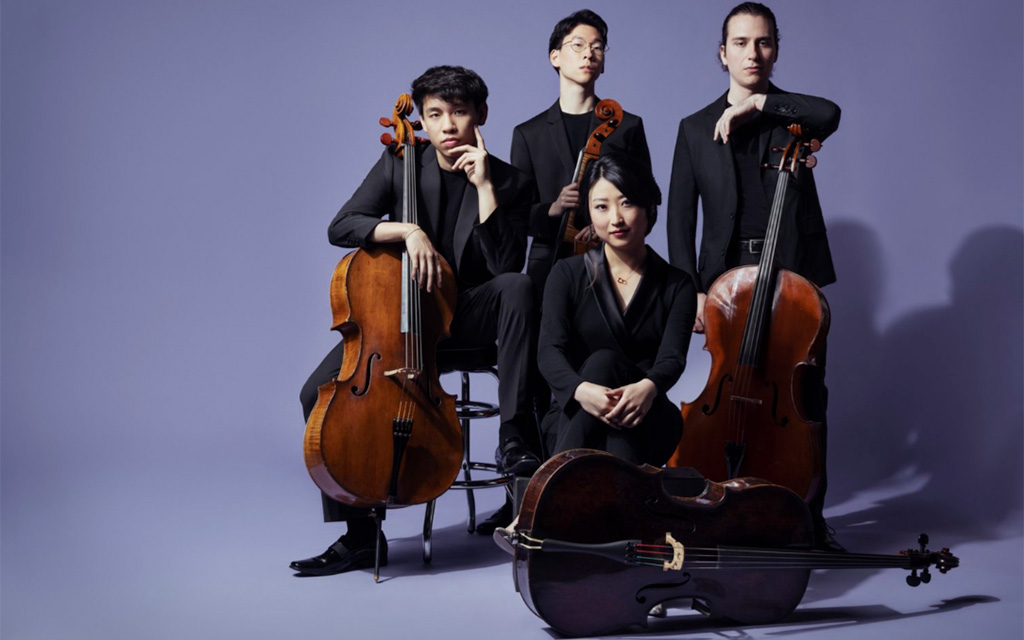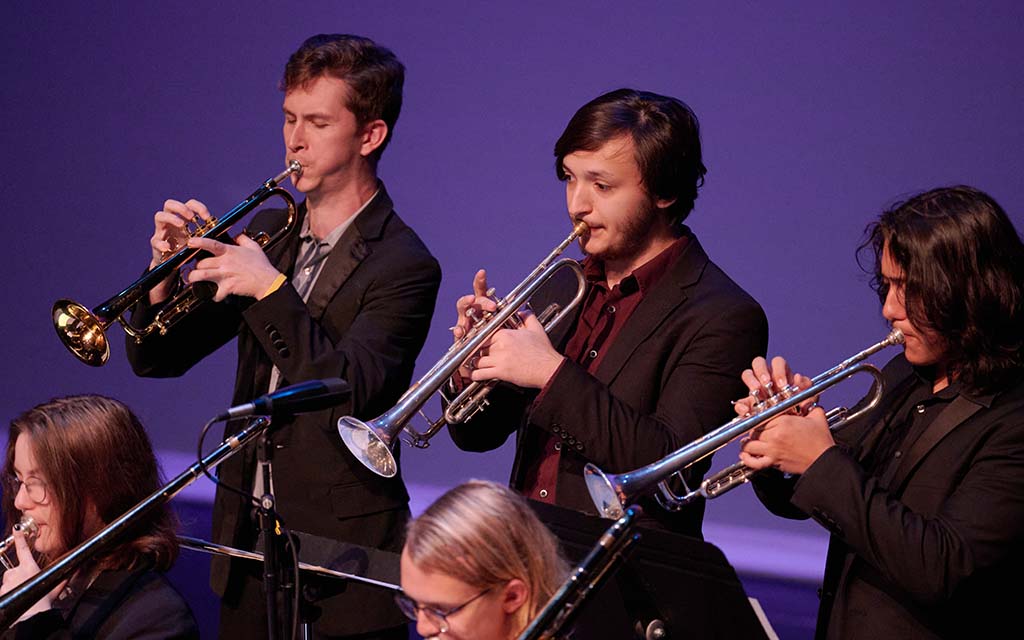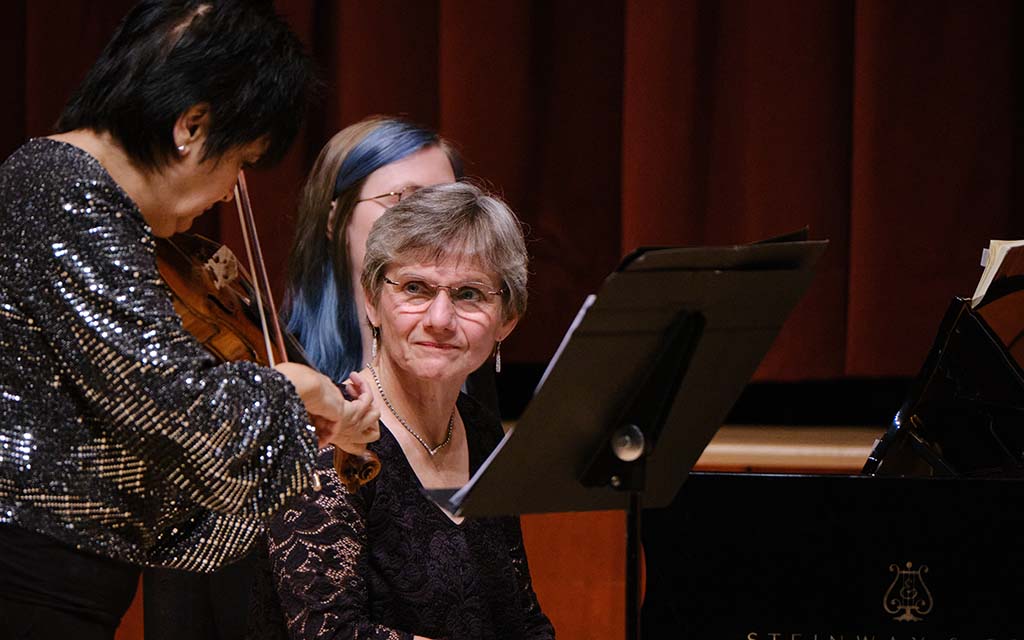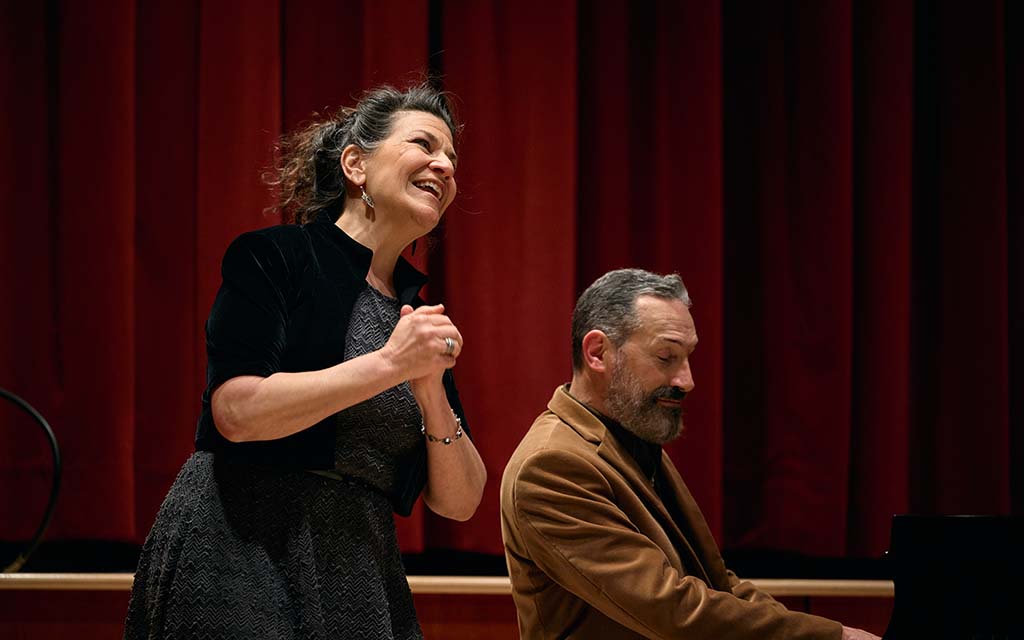Media and Emerging Technology Lab
A little more than a year has gone by since my announcement of the $10 million gift that would, in part, help us establish the Institute for Performance Innovation (IPI) to support groundbreaking graduate programs in our School of Design and Production and our School of Filmmaking. Last spring, I outlined our vision for the institute, and our proposed allocation of the funding; in the months since, we’ve been developing more detailed plans and proposals to position IPI as a global hub for creative industry research and development.
I doubt anyone has ever described UNCSA as a research institution, but our future success depends on shifting perceptions of the value and relevance of conservatory training in the 21st century, and of higher education in general. That means deepening our commitment, stated in our founding mission, to serve and enrich the cultural and economic prosperity of the people of North Carolina and our nation. As educators, it’s not enough to maintain the highest standards of artistic and academic excellence. We have a moral imperative to better prepare our students for the accelerating disruption they’ll face in today’s arts and entertainment industry.
My colleagues and I have been questioning what it means to be a conservatory these days. In the literal and historic sense, it’s a sanctuary to plant seeds, cultivate growth, and spark renewal—whether we’re referring to plant species, or to fledgling artists. As the word conservatory suggests, UNCSA will always be a community of cultural “conservators” at heart, dedicated to the proliferation of awe, beauty, and transcendence to counter the madness of the world we live in. But let me say this: for STEAM (Science, Technology, Engineering, Arts and Math) to displace STEM, which we need for the good of society and our state (not to mention our souls), the traditional conservatory should also excel as a modern laboratory.
We originally imagined IPI as such, to support a graduate Film program in augmented and virtual reality (AR/VR), and a graduate D&P program in animatronics. These curricula would facilitate collaboration across schools and disciplines, drive content innovation, shape new platforms, and define a new generation of technology-enhanced art experiences. That’s great in theory, but in practice, the organizational structure and programmatic considerations became unwieldy. So we created a spin-off: the Media and Emerging Technologies Lab (METL), pronounced “metal” for short. I see both IPI and METL as building on the success of our longstanding relationships with tech pioneers like Cirque du Soleil, Technicolor, Oculus, and many others by transforming our stages and studios into laboratories for artistic incubation and experimentation—upgraded with cutting-edge equipment on par with what you’d expect at any esteemed research university.
While IPI will continue to advance the animatronics program for D&P, METL will house the Film School’s strategic initiatives. I’ll share more about IPI in a future dispatch. In the meantime, I’d like to explain why we’re so heavy into METL (I can’t resist putting it that way), starting with an introduction of the director we hired to run it, Ryan Schmaltz. He brings more than a decade of business, product, and strategy development experience with both start-ups and established technology giants including Uber Technologies, Microsoft, and Adobe. We’re counting on his expertise to secure partners across a range of industries—medicine, national defense, education, real estate, retail and entertainment, and others—all soon to be revolutionized and radically transformed by the adoption of AR/VR platforms to train students, soldiers, and staff; market properties and products; and transport anyone virtually to any place in the world, all through a perfect marriage of art and engineering.
If you’re still wondering what, if anything, this has to do with “the arts,” it all boils down to this: creative content. In the brave new (virtual) worlds each of us will inevitably encounter and often inhabit, every sector will need artists to imagine and bring to life all kinds of environments, characters, creatures, and scenarios.
Those of you old enough to remember a world without smartphones should have a sense of how dramatically AR/VR will change the way we live and work, and how much investment that could attract to our school, Winston-Salem, and the state. Multinational financial giant Goldman Sachs estimates that by 2020, revenues for AR/VR industries will be between $120 to $180 billion, driven by hardware, games, branding, narrative storytelling, and commerce. Companies like Facebook, Google, and Microsoft have joined venture capitalists around the world in pouring billions of dollars into developing these technologies.
The Dean of our School of Filmmaking, Susan Ruskin, has spent countless hours over the past few years following the emergence of AR/VR and forecasting its potential for curricular expansion and local economic development. I’m especially proud that our Film School was recently recognized by Facebook-owned Oculus as one of only eleven U.S. schools qualified to participate in their “NextGen Program.” As a constituent of the University of North Carolina System, UNCSA can leverage our state’s leading programs in technical innovation, bio-medical research, and engineering to accelerate home-grown start-ups in AR/VR.
We’ve already begun joint projects and classes with the Kenan-Flagler Business School and computer scientists at UNC-Chapel Hill, entrepreneurs at Wake Forest University, and engineers at North Carolina State University. There’s also a cross-disciplinary, post-graduate certificate program in the works, focused on immersive media and entertainment technology. METL will connect our faculty expertise, the passion and ingenuity of our students, and our existing production pipeline and stage space with professionals from across the state and around the country to create a real-time tech incubator—or tech conservatory, if you will—in our own backyard. These projects and partnerships will enable our students to graduate with hands-on experience and creative agility, as they do in every discipline at UNCSA. Better still, instead of exporting all that next-gen talent to places like Los Angeles or New York, METL can accelerate local production of immersive content for national distribution in a variety of AR/VR platforms.
As we approach the midpoint of our five-year strategic action plan, I’m grateful to Dean Ruskin and her team for the time and energy they’ve devoted to a program that will help us meet the goals of several key initiatives: launching transformative programs and curricula, becoming a creative incubator, and catalyzing arts-based community and economic development. Thanks to her vision and leadership, Ryan’s business acumen, and our faculty’s industry connections, we’ve positioned UNCSA at the leading edge of a new frontier. Now it’s time to show our mettle.
Until next time,
![]()
M. Lindsay Bierman
Chancellor
April 03, 2018





